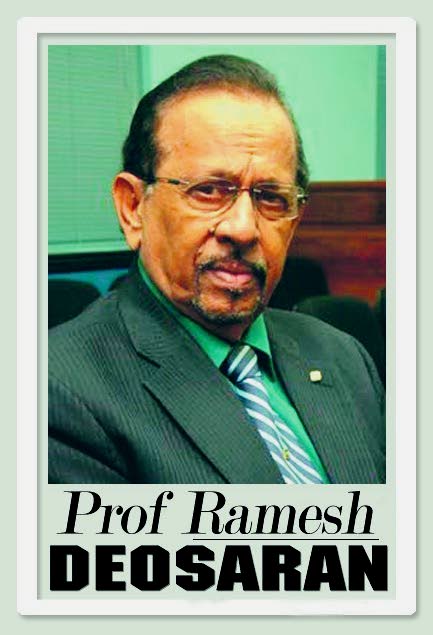Ethnic democracy alive

Ethnic. This is described as “having a common or national tradition; denoting origin by birth or descent rather than by nationality.”
In other words, race and nationality are not necessarily the same.
So how do you maintain your ethnicity and be a loyal national in a multi-ethnic society? How different are “national goals” from your ethnic traditions? And where and how is harmony maintained? The widespread Divali celebrations provide an opportunity for brief reflection.
While there are different ethnic groups here, political and cultural competition puts the focus moreso on people of African and East Indian descent. With “douglas” (22 per cent), they all form over 90 per cent of the population.
On witnessing the lighting-up celebrations, I said to myself, with all the day-by-day controversies and tensions, thank heavens we still have a lively, working democracy. It must be protected. Between 1845 and 1917, 144,000 indentured East Indians came (85 per cent Hindus, 14 per cent Muslims). Today, they have secured and were allowed to secure lively cultural space, sometimes resorting to the constitution as part of the evolution of ethnic democracy, maintaining core civic values alongside ethnic traditions.
Divali celebrates the Constitution – freedom of speech, association, religion. When any of these rights is severely offended, the Constitution is awakened for protection. It happened with the Sanatan Dharma Maha Sabha TV application, with the wearing of the hijab in school, with the Orisha case against TTT.
And who knows what will happen to the now “no marriage under 18” law?
Culture operates as both shield and sword. Of course, adaptations in various directions are all around, making cultural relativism the only constant.
From no Indian movies being allowed on state-controlled TV in the 1960s, from one precious half-hour of Sham Mohammed’s radio music programme, and an Indian melody hour by Pat Mathura on evenings, we have come to today’s six whole-day Indian radio stations, five local Indian TV stations (with Flow it is 12 by cable), five-ten Indian movies in a day, and about 15 Indian soap operas too. All this without fear of being closed down, even when Jaagriti’s Sat Maharaj, IBN’s Inshan Ishmael or Synergy’s Stephan Reis persistently quarrel with the government. Ethnic democracy is alive. Swaha’s ieTV is moving from the deeply religious to the broad-minded secular. The new Indian High Commissioner, Arun Kumar Sanu, remains fascinated. At the Divali Nagar last Thursday night, he expressed wonder at the dedication and splendour he witnessed.
I myself remain impressed at what I saw – the large crowd of mixed ethnicities. Our thanks to National Council of Indian Culture (NCIC) president, Dr Deokinanan Sharma, his tireless PRO Surujdeo Mangroo and executive members.
There is also economic democracy alongside free-market ethnicity.
“You will get it cheaper in Chaguanas,” it is commonly said. Indeed, from Penal, Tunapuna, Couva, Princes Town, Sangre Grande, St James to Chaguanas, there is a bustling trade in East Indian wear for men. women and children. You have seen them at Divali, Ramleela, weddings, Ramayans, Eid, Indian Arrival Day. And don’t ask for doubles, roti, Indian concerts (local and imported), chutney soca, pichakaree, etc. Entrepreneurs from India recognise the ethic flourish here, opening well-stocked Expo caravans from north to south.
This is ethnic democracy – freedom of choice. It was good business sense that sent the Ansa McAl conglomerate to invest in “Indian radio stations.” A niche was discovered in the midst of growing media competition. It is now also good business sense for the mainstream media to publish so many ethnic features – on African, Chinese, First Peoples, Portuguese, Syrian, Indian, etc.
It is economics that drove such ethnic expansion. An identity of whatever kind is man’s most cherished possession. Without an identity, you are essentially nobody. Being identified as a delinquent is better than having no identity at all. That was James Baldwin’s metaphysics in Nobody Knows My Name.
It is part of the identity crisis facing new immigrants. The Middle East wars, the never-ending India-Pakistan border warfare, tribal wars in Kenya and Uganda, the Myanmar massacre, Black Lives Matter, Kurdish protests, the Catalonia referendum, the quest by Scotland, Northern Island – all are basically struggles for identity, and to be respected as somebody.
It is a great pity that one man’s struggle for identity has to be seen as being at the expense of another man’s identity.
It is hoped that the cultural policy now before Cabinet considers these imperatives.

Comments
"Ethnic democracy alive"